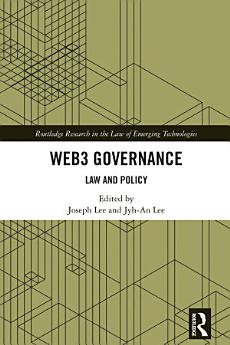Web3 Governance: Law and Policy
Acerca de este libro electrónico
Artificial intelligence (AI) and data analytics have played a key role in the development of Web3, transforming the governance of existing digital platforms and enabling the formation of new platforms. Web3 is increasingly used for commercial and social interactions and is predicted to be the future of the internet. As a blockchain-based web, Web3 provides a platform for cryptocurrencies, non-fungible tokens (NFTs), decentralised autonomous organisations, and decentralised finance. Web3 users can read, write, and even own their own version of the web, which has transformed the space for commerce and social interaction, but brings inherent risks. This book identifies the principles in law and policy which can be used as the basis for the development of Web3 activities and their regulation with a focus on security, scalability, and sustainability. Though digital platforms and underlying technologies have reshaped our daily lives and business practices, they have also caused numerous legal problems. The book considers the interaction of data analytics with well-established fields of study such as financial law, tax law, intellectual property, data protection, private international law, and internet law.
Addressing the current knowledge gap in the legal literature on Web3, including blockchain, AI, and data governance in commercial and social activities, it develops new baseline frameworks which will form the foundation for new research into data governance, FinTech, and RegTech, as well as social and market infrastructure, and will be essential reading for scholars in law, business studies, economics, public administration, and regulation.
Acerca del autor
Joseph Lee is a reader in corporate and financial law at the University of Manchester School of Law. He is founding programme director of Manchester Online LLM Master of Laws in International Commercial and Technology Law. He is author of the book Crypto-Finance, Law and Regulation: Governing an Emerging Ecosystem and editor of the book Data Governance in AI, FinTech and RegTech. He is a member of the LawTech Advisory Council of the Astana International Financial Centre and of the Manchester LawTech Initiative. Dr Lee has been principal investigator of research projects funded by the UKRI, British Academy, and British Council. He has held a number of visiting positions, including at KU Leuven and Tokyo University. He is also an attorney-at-law of New York State.
Jyh-An Lee is a Professor and the Executive Director of the Centre for Legal Innovation and Digital Society at the Chinese University of Hong Kong Faculty of Law. He has been featured on ABC News, BBC News, Bloomberg News, Financial Times, and Fortune as an expert on intellectual property and internet law. His works have been cited by the US Court of Appeals for the Fifth Circuit, the UK High Court of Justice, and the European Union (in a WTO dispute-settlement case).






